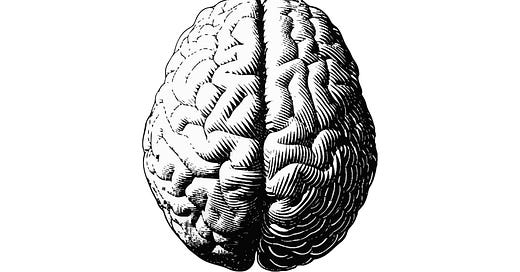How to stop and slow down dementia with rapamycin
Decreasing mTOR could help with dementia and problems of the aging brain.
mTOR is a protein/enzyme most well-known for its ability to increase muscle synthesis.
But a lot of research shows that high mTOR is involved in aging and chronic disease.
Recently, researchers have been working on Alzheimer’s, cognitive decline, and brain dysfunction.
Some of their experiments look at the effect of mTOR on brain aging.
The results show that decreasing mTOR could help with dementia and problems of the aging brain.
It’s possible to decrease mTOR by multiple mechanisms, including using the treatment rapamycin.
The animal experiments were performed at the University of Texas Health San Antonio, San Antonio, Texas. This paper was published in Aging Cell.
The researchers were investigating cerebrovascular dysfunction – a condition involving disruption of blood flow to the brain.
They looked at its role in cognitive decline – the gradual decline in mental function over time.
“Cerebrovascular dysfunction and cognitive decline are highly prevalent in aging, but the mechanisms underlying these impairments are unclear.”
They were also interested in decreased blood flow (cerebrovascular dysfunction) in Alzheimer’s.
“Cerebral blood flow decreases with aging and is one of the earliest events in the pathogenesis of Alzheimer’s disease (AD).”
Previous experiments showed that the protein mTOR accelerates Alzheimer’s disease and mental deterioration in rodents.
This protein seems to do this partly by affecting blood flow to the brain.
“mTOR drives disease progression in mouse models of AD and in models of cognitive impairment associated with atherosclerosis.”
So the researchers carried out further experiments in rodents looking at the effect of mTOR on brain health.
The researchers carried out brain scans and autopsies on different groups of rats.
Some rats had been given rapamycin – a treatment that lowers mTOR.
They compared the brain samples and brain scans of the different rats.
“We used behavioral tools and MRI-based functional imaging, together with biochemical and immunohistochemical approaches.”
Decreasing mTOR with rapamycin produced numerous profound benefits on brain health.
Learning and memory were improved in older animals given rapamycin.
Blood flow and oxygen supply to the brain were improved.
Communication between the brain and muscles of the body (neuromuscular uncoupling) was also improved by decreasing mTOR using the treatment rapamycin.
These findings infer that decreasing mTOR could lead to profound improvements in age-related cognitive decline and various types of dementia.
“mTOR attenuation with rapamycin ameliorates deficits in learning and memory, prevents neurovascular uncoupling, and restores cerebral perfusion in aged rats.”
The researchers also discovered that mTOR causes the degradation of synapses.
mTOR also decreases the density of blood vessels in the brains of older animals.
Synapses are essential for sending information inside the brain.
“Additional analyses revealed that mTOR drives age-related declines in synaptic and vascular density during aging.”
Rapamycin and other mTOR-lowering tactics could help to reduce the burden of age-related cognitive decline, dementia, and atherosclerosis.
“In addition to mediating AD deficits in models of AD and atherosclerosis, mTOR drives cerebrovascular, neuronal, and cognitive deficits associated with normative aging.”
Because of these numerous effects, the researchers claim that reducing mTOR could prevent or stop Alzheimer’s disease.
“Since treatment of age-related cerebrovascular dysfunction in older adults is expected to prevent further deterioration of cerebral perfusion, recently identified as a biomarker for the very early (preclinical) stages of AD, mTOR attenuation may potentially block the initiation and progression of AD.”
You should always consult your healthcare practitioner for guidance on medical diagnosis and treatment.
—-Important Message—-
Sprinkle this in your water to prevent Alzheimer’s from ever happening to you
There’s a cheap powder that you buy at any grocery store…
And just a pinch will naturally turn your normal tap water into a powerful elixir…
…where with every sip, you are destroying the harmful amyloid plaques that lead to Alzheimer’s…
Big Pharma doesn’t want you to know about it… because it won’t make them any money…
Here’s the cheap ordinary powder you just sprinkle in your water…
———-
Matt Cook is editor-in-chief of Daily Medical Discoveries. Matt has been a full time health researcher for 26 years. ABC News interviewed Matt on sexual health issues not long ago. Matt is widely quoted on over 1,000,000 websites. He has over 300,000 daily newsletter readers. Daily Medical Discoveries finds hidden, buried or ignored medical studies through the lens of 100 years of proven science. Matt heads up the editorial team of scientists and health researchers. Each discovery is based upon primary studies from peer reviewed science sources following the Daily Medical Discoveries 7 Step Process to ensure accuracy.
Citations: mTOR drives cerebrovascular, synaptic, and cognitive dysfunction in normative aginghttps://pubmed.ncbi.nlm.nih.gov/31693798/







